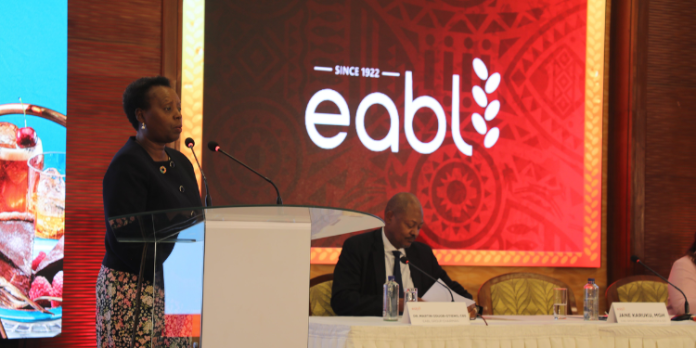East African Breweries Ltd (EABL) announced a robust 12% rise in net profit to KES 12.198 billion ($94.3 million) for the financial year ending June 2025, according to bne IntelliNews.
The Diageo-controlled brewer saw net revenue surge 49% to KES 128.8 billion ($995.77 million), with sales volumes climbing 2% across its core markets of Kenya, Uganda, and Tanzania. The results arrive amid significant regulatory uncertainty in Kenya, where authorities propose sweeping alcohol reforms.
The National Authority for the Campaign Against Alcohol and Drug Abuse (NACADA) seeks to raise the legal drinking age from 18 to 21 and impose restrictions on advertising, online sales, home deliveries, and celebrity endorsements.
The changes threaten to impact formal alcohol sales in a market where illicit brews already constitute an estimated 60% of consumption, a sharp increase from 50% in recent years. Group CEO Jane Karuku emphasised resilience despite these challenges:
“All our markets recorded growth, fortifying our business position across the region,” Karuku said.
Kenya contributed approximately 45% of regional revenues, benefiting from declining interest rates and a stronger shilling, whereas Tanzania faced currency pressures.
EABL’s financial strength coincides with parent company Diageo’s strategic review of its 65% stake, potentially valuing the beer business at $2 billion, a significant premium to its current $1.2 billion market capitalisation.
The review forms part of Diageo’s broader retreat from African brewing assets, having already exited operations in Ghana, Nigeria, Cameroon, Seychelles, and Ethiopia. Potential suitors include Heineken, Castel Group, and AB InBev, whose entry could reconfigure East Africa’s beverage landscape.
Operational highlights included a jump in pre-tax profit to KES 19.312 billion ($149.3 million), bolstered by foreign exchange gains and reduced finance costs. EABL slashed total debt by KES 8.3 billion ($64.17 million) following Kenya’s excise duty payment reforms, which eased cashflow pressures.
The company declared a final dividend of KES 5.50 ($0.043) per share, lifting the annual payout to KES 8.00 ($0.06), a 14.3% year-on-year increase. However, despite the strong results, Karuku warned that illicit alcohol’s market share had worsened to 60%, driven by consumer income pressures.
“The ratio of illicit to formal alcohol has worsened to 60:40, up from 50:50 just a few years ago,” she noted, urging stronger regulatory enforcement to protect legitimate businesses.
